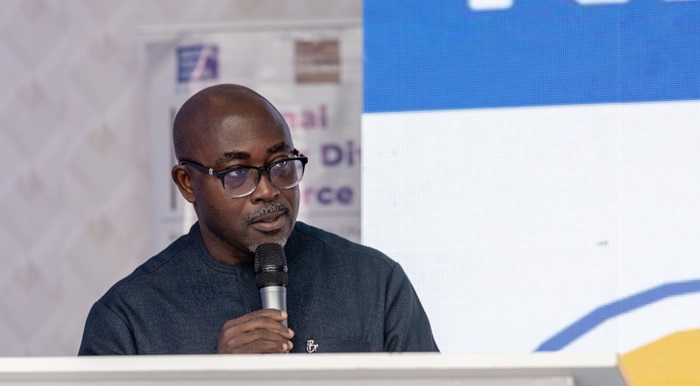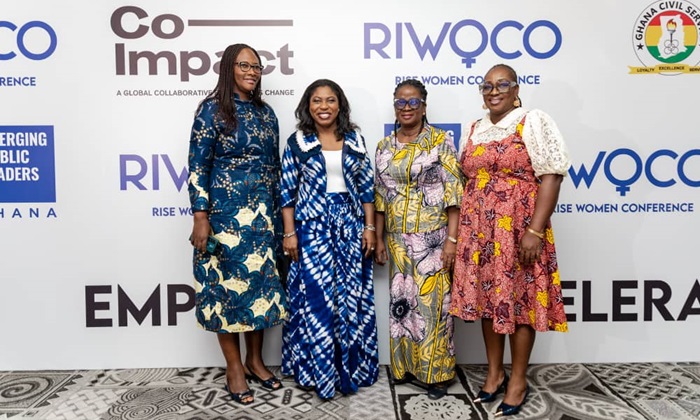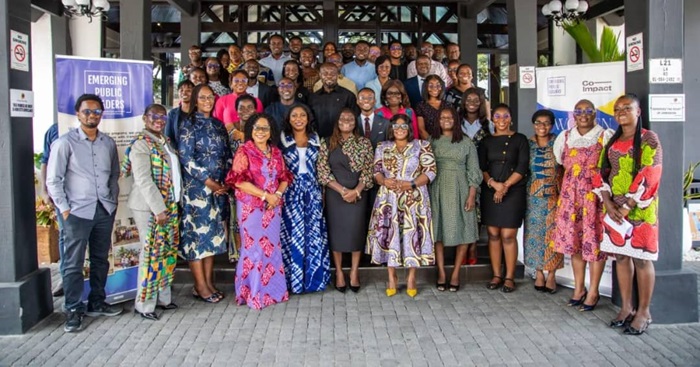The 2025 Rise Women’s Conference (RiWoCo) in Accra has called for binding measures and measurable action to close gender gaps in Ghana’s public service leadership, warning that women’s representation will continue to fall short of national and international targets unless equality is enforced.
The conference, held on Wednesday, August 13, 2025, under the theme “Beyond declarations: advancing gender equality and inclusive leadership for transformative governance”, was organised by the EPL Co-Impact Women on the Rise Initiative in partnership with the Office of the Head of Civil Service. It brought together senior public officials, development partners, and gender advocates to examine barriers that limit women’s participation in leadership.
Delivering the keynote address, Professor Eugene Kofuor Maafo Darteh of the University of Cape Coast said the public service, as the country’s largest employer, had a responsibility to model equality and fairness but continued to reflect deep-rooted patriarchal norms.
“While there has been some progress since the Beijing Declaration, the systemic gaps remain,” Professor Darteh said. “The public service should be a beacon of equity, but structural barriers continue to hold women back from decision-making spaces.”

He urged that gender equality be factored into performance appraisals for public sector leaders, noting that token appointments without influence defeated the purpose of inclusion.
“Leadership is not just about being in the room; it is about being heard and making decisions that affect policy and lives,” he added.
In a solidarity message, the Minister for Gender, Children and Social Protection announced Cabinet approval of the revised National Gender Policy, which she said would guide all sectors to adopt gender-responsive measures.
“This policy provides a guide for sectors to take concrete steps. The Affirmative Action Bill, when passed, will give legislative backing to accelerate change,” the Minister said.
She explained that the Bill would set binding targets for women’s participation across leadership levels, address workplace discrimination and require regular reporting to Parliament.
“Without legislative muscle, commitments will remain promises on paper. This Bill is our opportunity to make equality enforceable,” she added.
The Country Director of EPL Ghana, Ms Juliet A. Amoah, said the Women on the Rise Initiative was created to tackle barriers that exclude women from senior roles in the public sector.

“We are not here to make symbolic commitments,” Ms Amoah said. “We must create institutional accountability that is real and measurable so that the next generation inherits a public service built for all.”
She explained that mentorship was central to the programme, linking aspiring female leaders with seasoned professionals who could guide them through the challenges of public service advancement.
“If we want women in the highest offices tomorrow, we must start preparing them today, from the classroom to the Cabinet table,” she said.
During discussions, participants pointed out that cultural perceptions and workplace bias often undermined women’s progress.
One contributor noted that assertive men were praised as confident, while assertive women were described as disrespectful, with marital or parental status sometimes used to block promotions.
Others argued that representation mattered, saying girls who never saw women in leadership often believed such roles were not meant for them. “The same applies to boys,” one participant said. “They must see women leading to normalise equality.”
Participants also urged public institutions to publish gender-disaggregated data on leadership appointments and to link senior role selections to gender-sensitive benchmarks.
The conference stressed that progress would depend on legislative reform, institutional accountability, and mentorship to prepare girls early for future leadership roles.

